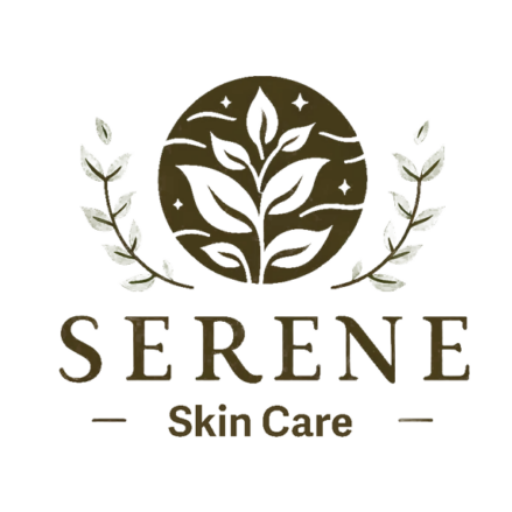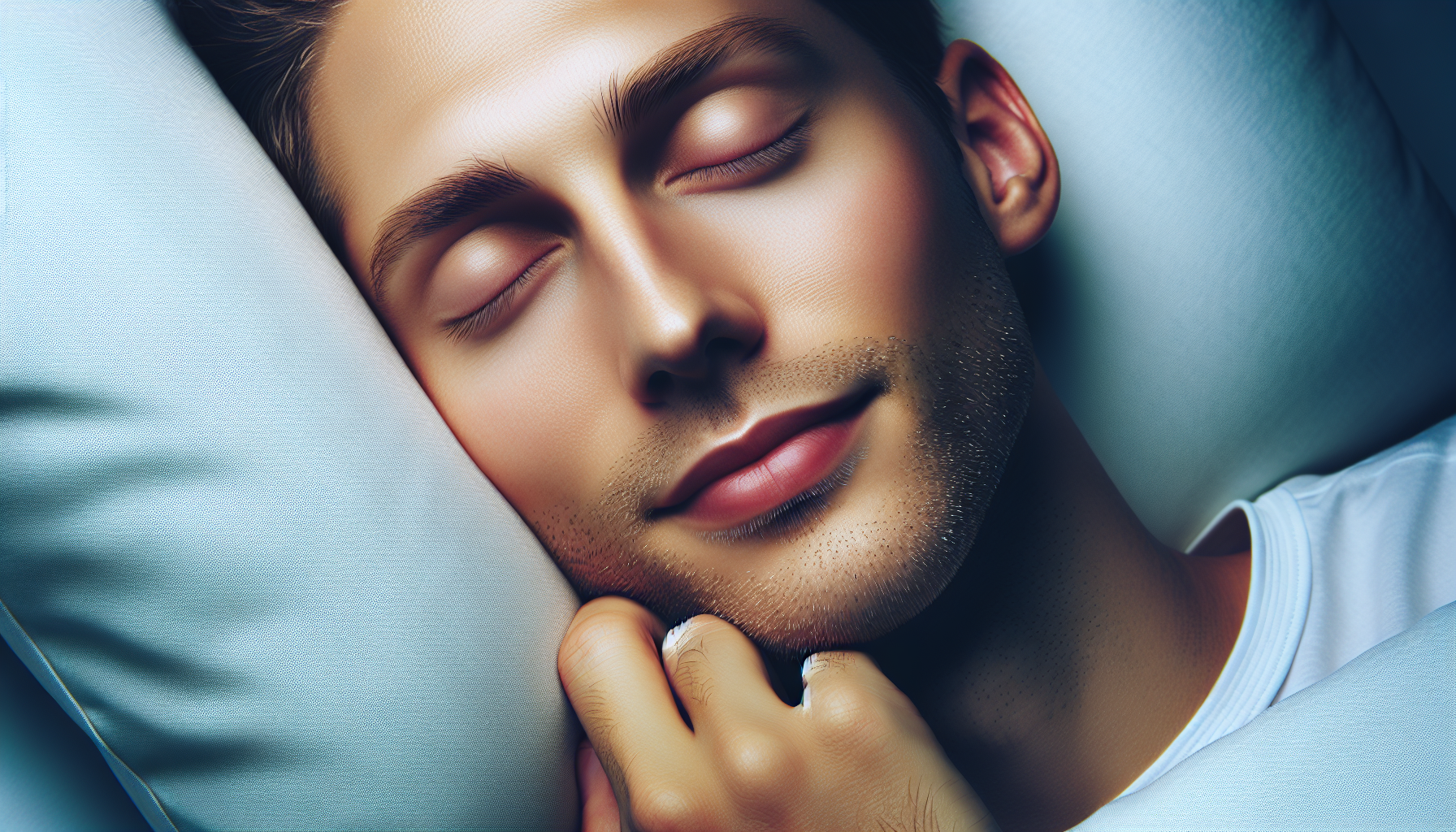In “The Role Of Sleep In Skin Health And Related Care Techniques,” the article explores the significant impact of sleep on the overall health of the skin. It emphasizes how a good night’s sleep plays a crucial role in maintaining healthy, glowing skin and discusses various care techniques that can enhance skin quality. This informative piece highlights the correlation between sleep patterns and skin conditions, shedding light on the importance of prioritizing restful sleep for optimal skin health.
Importance of Sleep for Skin Health
Getting enough quality sleep is not only essential for overall health and well-being, but it also plays a crucial role in maintaining and promoting healthy skin. Adequate sleep is often referred to as “beauty sleep” for a reason. During sleep, the body undergoes a series of regenerative processes that are vital for skin repair, restoration, and rejuvenation.
Effects of Sleep Deprivation on Skin
Lack of sleep, on the other hand, can have detrimental effects on the skin. Sleep deprivation can disrupt the delicate balance of the body’s hormones, leading to imbalances that affect the skin. One of the most noticeable effects of insufficient sleep is dull and lackluster skin. Without proper rest, the skin’s natural glow diminishes, leaving it looking tired and aged.
Additionally, sleep deprivation can weaken the skin’s barrier function, making it more susceptible to environmental damage, pollution, and irritants. This can lead to increased skin sensitivity, redness, and inflammation. Moreover, a lack of sleep can impair the skin’s ability to regenerate and repair itself, leading to a slower healing process and a higher likelihood of skin problems such as acne, eczema, and psoriasis.
How Sleep Promotes Skin Health
On the flip side, quality sleep promotes skin health in various ways. It allows the body to engage in essential processes that lead to skin repair, renewal, and protection. Let’s delve into some of these mechanisms.
Skin Repair and Renewal During Sleep
Cell Turnover and Restoration
While we sleep, our body enters a state of rest and regeneration. During this time, the skin undergoes a process called cell turnover, where old and damaged skin cells are shed, and new cells are produced. This cell renewal process is vital for maintaining a healthy and youthful complexion.
Sleep deprivation disrupts this important cycle, leading to a buildup of dead skin cells, clogged pores, and a dull complexion. By prioritizing adequate sleep, individuals allow their skin to undergo the necessary cell turnover and restoration, resulting in a vibrant and radiant appearance.
Collagen Production
Collagen is an essential protein responsible for maintaining the skin’s firmness, elasticity, and suppleness. It plays a crucial role in warding off premature aging, wrinkles, and fine lines. During sleep, the body ramps up collagen production, working diligently to repair any damage caused by environmental factors such as sun exposure and pollution.
Adequate sleep ensures optimal collagen synthesis, helping to keep the skin plump, smooth, and youthful. On the contrary, inadequate sleep can lead to a decline in collagen production, contributing to the development of wrinkles, sagging skin, and a loss of firmness.
Melatonin and Its Benefits
Melatonin, also known as the sleep hormone, is not only involved in regulating our sleep-wake cycle but also offers substantial benefits for skin health. Melatonin is a powerful antioxidant that helps neutralize harmful free radicals, which can damage the skin and accelerate aging.
During sleep, melatonin levels in the body increase, allowing it to efficiently repair and protect the skin from oxidative stress. This protection against free radicals helps to prevent premature aging, maintain a healthy skin barrier, and reduce inflammation. Therefore, ensuring an adequate amount of sleep is essential for the body to produce sufficient melatonin and enjoy its protective benefits for the skin.
Effects of Sleep on Skin Aging
Premature Aging and Wrinkles
Sleep deprivation can speed up the aging process and lead to the development of wrinkles and fine lines. Chronic lack of sleep increases the production of the stress hormone cortisol, which can break down collagen and elastin, the proteins responsible for maintaining the skin’s structure and elasticity. As a result, the skin becomes more prone to sagging and wrinkle formation.
Furthermore, sleep deprivation can cause dehydration, leaving the skin dry and brittle. Moisture loss can further accentuate the appearance of wrinkles and contribute to the aging process. To maintain a youthful complexion and reduce the risk of premature aging, prioritizing quality sleep is paramount.
Dark Circles and Puffiness
One of the most visible signs of sleep deprivation is the development of dark circles and puffy under-eye bags. When we fail to get enough quality sleep, the blood vessels under the thin skin around the eyes may dilate, resulting in a darker appearance. Lack of sleep also leads to poor lymphatic drainage, causing fluid to accumulate around the eyes and causing puffiness.
Getting regular, restful sleep allows for proper circulation and lymphatic drainage, reducing the appearance of dark circles and puffiness. Additionally, it promotes the production of hyaluronic acid, a natural substance that helps to plump up the delicate under-eye area and diminish the signs of fatigue.
Loss of Skin Elasticity
A study published in the journal Clinical and Experimental Dermatology found a significant correlation between poor sleep quality and decreased skin elasticity. Lack of sleep can impair the skin’s natural ability to recover from daily damage and oxidative stress, leading to a loss of elasticity and firmness.
Sleep is a time for repair and rejuvenation, allowing the skin to replenish its moisture levels and bounce back from stressors. Consistently getting adequate sleep helps maintain the skin’s elasticity, preventing it from becoming loose, saggy, or droopy.
Sleeping Positions and Their Impact on Skin Health
The Best Sleeping Positions for Skin
Believe it or not, the position in which you sleep can have an impact on your skin and its overall health. The ideal sleeping position for skin health is sleeping on your back. This position helps to prevent the formation of sleep lines, wrinkles, and creases that can develop due to the repeated pressing of the face against the pillow.
Sleeping on your back also aids in proper lymphatic drainage, preventing fluid accumulation and reducing puffiness in the face and under-eye area. Additionally, it helps to minimize contact between the face and any potentially irritating or allergenic substances present on the pillowcase.
How Sleeping Positions Affect Wrinkles and Acne
While sleeping on your back is the most beneficial position for skin health, other sleeping positions can have certain drawbacks. Sleeping on your side or stomach can lead to the development of sleep lines and wrinkles over time due to the continuous compression of the facial skin against the pillow.
Furthermore, sleeping in these positions can exacerbate acne breakouts. The constant friction and pressure on the skin can clog pores, trap oils and dirt, and promote bacterial growth, leading to increased acne flare-ups.
If sleeping in any position other than on your back is unavoidable, using a satin or silk pillowcase can help reduce friction and minimize the potential for skin irritation and wrinkles. These smooth fabrics allow the skin to glide against the pillow rather than being pulled and tugged, resulting in less damage to the skin’s surface.
Nighttime Skincare Routine
Cleansing and Removing Makeup
Having a consistent nighttime skincare routine is crucial for maintaining healthy skin. The routine should start with thorough cleansing and the removal of makeup. Throughout the day, our skin accumulates dirt, sweat, oil, and environmental pollutants, which can clog pores and lead to skin problems.
Using a gentle cleanser suited to your skin type helps to remove these impurities and prepare the skin for hydration and nourishment. It is essential to be diligent in removing all traces of makeup before bed, as sleeping with makeup on can contribute to clogged pores, breakouts, and dull skin.
Moisturizing and Hydrating
After cleansing, moisturizing should follow promptly. Applying a suitable moisturizer helps to hydrate the skin and restore its natural moisture balance. Hydration is vital as it keeps the skin soft, plump, and supple, preventing dryness, flakiness, and irritation.
Choose a moisturizer that suits your skin type and contains ingredients such as hyaluronic acid or ceramides, which help to lock in moisture and strengthen the skin’s barrier function. Applying moisturizer before bed allows it to work overnight, helping to repair the skin’s moisture barrier and combat dryness.
Night Creams and Serums
In addition to a basic nighttime moisturizer, incorporating targeted night creams and serums into your routine can enhance the rejuvenating effects of sleep on the skin. Night creams and serums are specifically formulated to target various skin concerns such as aging, hyperpigmentation, or uneven texture.
These products often contain potent active ingredients that can penetrate deeper into the skin during sleep when the skin’s barrier is more permeable. Look for ingredients like retinol, vitamin C, niacinamide, or peptides, which are known for their skin-repairing and anti-aging properties.
Pillowcase Fabrics and Their Effect on Skin
Avoiding Rough Fabrics
While the importance of clean bedding is well-known, the choice of pillowcase fabric can also impact the health and appearance of the skin. Avoid using pillowcases made from rough-textured fabrics such as wool or some synthetic materials. These materials can cause friction and irritation, potentially leading to skin redness, inflammation, and even sensitivity.
Using a pillowcase made from smooth, soft fabrics is recommended. This prevents unnecessary tugging or pulling on the delicate facial skin, reducing the risk of wrinkles and protecting the skin’s integrity.
Silk and Satin Pillowcases
If possible, investing in silk or satin pillowcases can be a game-changer for skin health. Silk and satin fabrics are incredibly gentle on the skin, allowing it to glide smoothly against the pillow rather than being tugged or pulled.
These fabrics also have the added benefit of being less absorbent than cotton, helping to retain the skin’s natural moisture and preventing excessive drying overnight. Additionally, silk and satin pillowcases can aid in preventing hair breakage and frizz, promoting healthier-looking hair.
Avoiding Sleep Disruptors for Healthy Skin
Limiting Exposure to Blue Light
In today’s digital age, electronic devices have become an integral part of our daily lives. However, excessive exposure to blue light emitted by these devices, such as smartphones, tablets, and computers, can interfere with sleep quality and affect skin health.
Blue light exposure can disrupt the body’s natural sleep-wake cycle, making it harder to fall asleep and stay asleep. This can lead to sleep deprivation and the various skin problems associated with it. To mitigate the effects of blue light, it is advisable to limit screen time before bed and utilize blue light filters or screen dimming applications on electronic devices.
Maintaining a Cool and Dark Bedroom
Creating a sleep-friendly environment is essential for quality rest and optimal skin health. To promote a restful night’s sleep, it is recommended to maintain a cool and dark bedroom. The ideal bedroom temperature for sleep is around 60 to 67 degrees Fahrenheit (15 to 20 degrees Celsius). This temperature range helps to promote the body’s natural drop in core temperature, signaling it’s time for sleep.
Ensuring a dark bedroom is also crucial as exposure to light can interfere with the production of melatonin, disrupting the sleep-wake cycle. Using blackout curtains, eye masks, or sleep-friendly lighting solutions can help create a dark environment conducive to sleep.
Reducing Alcohol and Caffeine Intake
While the occasional glass of wine or cup of coffee may not disrupt sleep significantly, regular or excessive consumption of alcohol and caffeine can interfere with the quality of sleep obtained. Both substances can act as stimulants, making it harder to fall asleep and stay asleep throughout the night.
Alcohol can fragment sleep and lead to more frequent awakenings, while caffeine can increase alertness and delay the onset of sleep. Cutting back on alcohol and caffeine intake, particularly in the hours leading up to bedtime, can greatly improve sleep quality and subsequently benefit the skin’s overall health and appearance.
Getting Enough Quality Sleep for Skin Health
Recommended Sleep Duration
The National Sleep Foundation recommends that adults aim for 7 to 9 hours of quality sleep per night for optimal health and well-being. This sleep duration allows the body ample time to engage in the various regenerative processes necessary for skin repair, restoration, and rejuvenation.
Consistently achieving the recommended sleep duration ensures that the body and skin can function optimally. It allows for proper hormone regulation, collagen production, and repair mechanisms, leading to a healthy and youthful complexion.
Creating a Relaxing Bedtime Routine
Establishing a relaxing bedtime routine can help signal the body and mind that it is time to unwind and prepare for sleep. Engaging in calming activities before bed can promote relaxation and ease the transition into sleep.
Some recommended bedtime routine practices include reading a book, taking a warm bath or shower, practicing deep breathing or meditation, or incorporating gentle stretching or yoga into the evening routine. Avoid engaging in stimulating activities or using electronic devices close to bedtime, as this can hinder sleep quality.
Addressing Sleep Disorders
It is important to note that some individuals may struggle with sleep disorders that impact their ability to obtain quality sleep. Conditions such as insomnia, sleep apnea, or restless leg syndrome can significantly disrupt sleep quality and quantity.
If you suspect that you may have an underlying sleep disorder, it is advisable to consult with a healthcare professional or sleep specialist. They can provide a proper diagnosis and offer guidance on appropriate treatment options to improve sleep quality and promote overall skin health.
Stress, Sleep, and Skin Health
The Connection Between Stress and Skin
Stress is an inevitable part of life, and its impact reaches far beyond our mental and emotional well-being. Chronic stress can take a toll on our skin, affecting its appearance and health. When we are stressed, our body releases cortisol, also known as the stress hormone. Elevated cortisol levels can trigger a wide range of skin issues, including acne breakouts, inflammation, redness, and impaired healing.
Moreover, stress can disrupt sleep patterns, making it harder to obtain quality sleep. This can create a vicious cycle, as sleep deprivation further exacerbates stress levels and its impact on the skin.
Stress Management Techniques for Better Sleep and Skin Health
Effectively managing stress is vital for both sleep quality and skin health. Incorporating stress reduction techniques into your daily routine can have a profound impact on your overall well-being. Some effective stress management techniques include regular exercise, mindfulness meditation, deep breathing exercises, spending time in nature, or engaging in creative outlets.
Taking time to prioritize self-care, practicing relaxation techniques, and seeking emotional support can help reduce stress levels and promote better sleep quality. By managing stress, individuals can enjoy the benefits of improved sleep and healthier-looking skin.
Conclusion and Key Takeaways
Prioritizing sleep is crucial for maintaining healthy skin and overall well-being. Getting enough quality sleep allows the body to engage in essential processes that promote skin repair, restoration, and rejuvenation. It helps maintain collagen production, prevents premature aging and wrinkles, and allows the skin to replenish its moisture levels.
Sleeping in a position that minimizes contact with the pillow and choosing smooth, soft pillowcase fabrics can reduce the risk of sleep lines, wrinkles, and skin irritation. Additionally, establishing a nighttime skincare routine, avoiding sleep disruptors, and addressing sleep disorders can all contribute to healthier skin.
Managing stress is also paramount, as stress can disrupt sleep patterns and negatively impact skin health. Practicing stress reduction techniques can help improve sleep quality and enhance the appearance and condition of the skin.
By combining proper skincare practices with adequate, quality sleep, individuals can achieve optimal skin health and enjoy a radiant, youthful complexion. Prioritizing sleep as an integral part of one’s skincare routine is a holistic approach that pays dividends for both physical and mental well-being. Take the time to invest in your beauty sleep, and your skin will thank you for it. Sweet dreams to a healthier and happier you!




